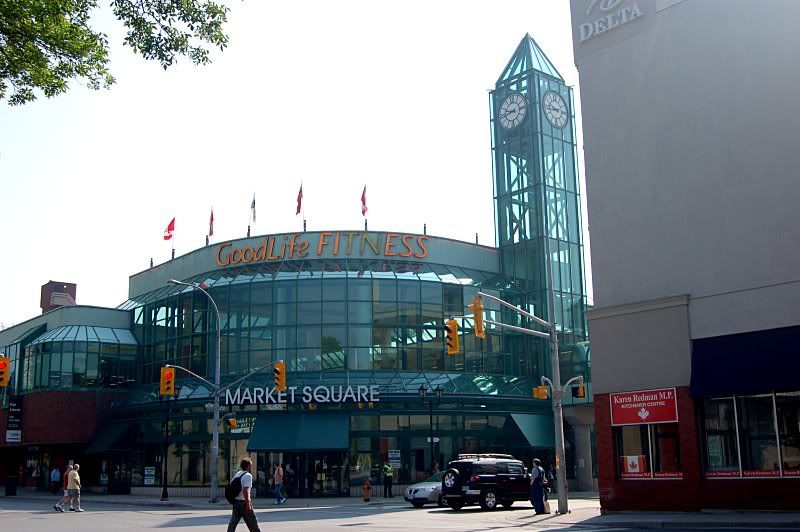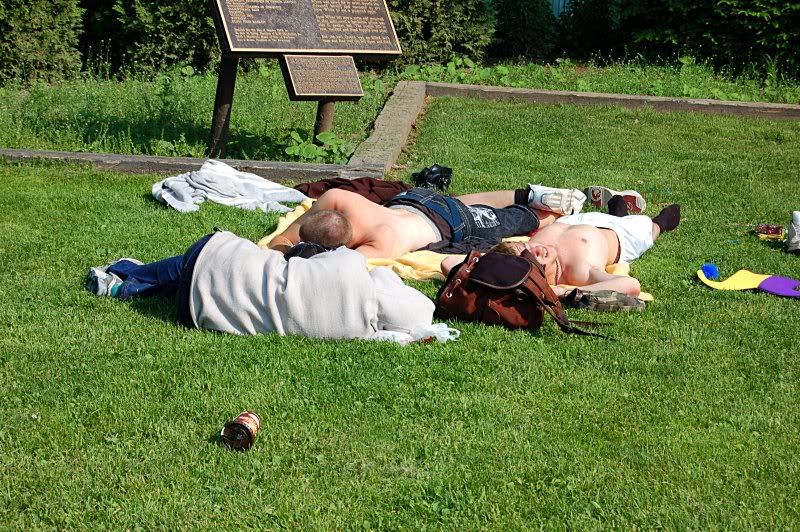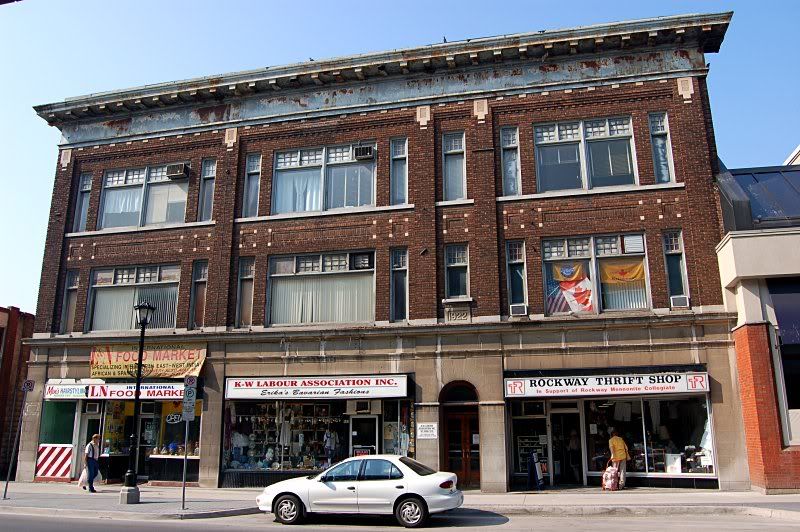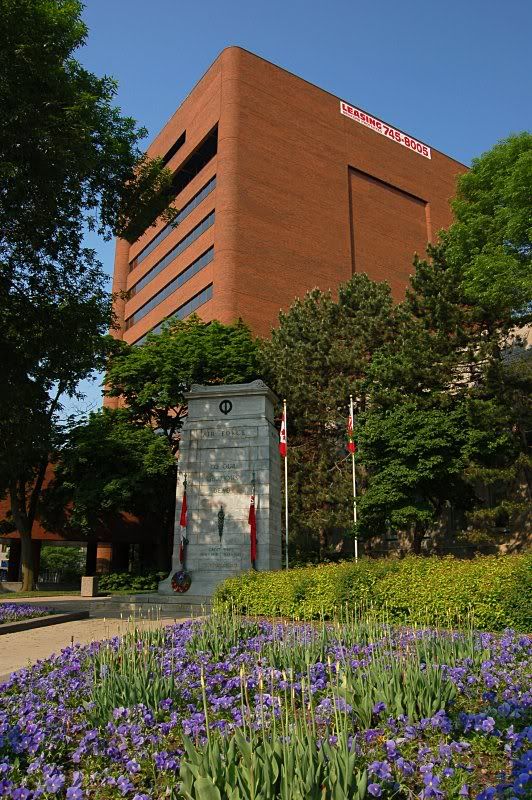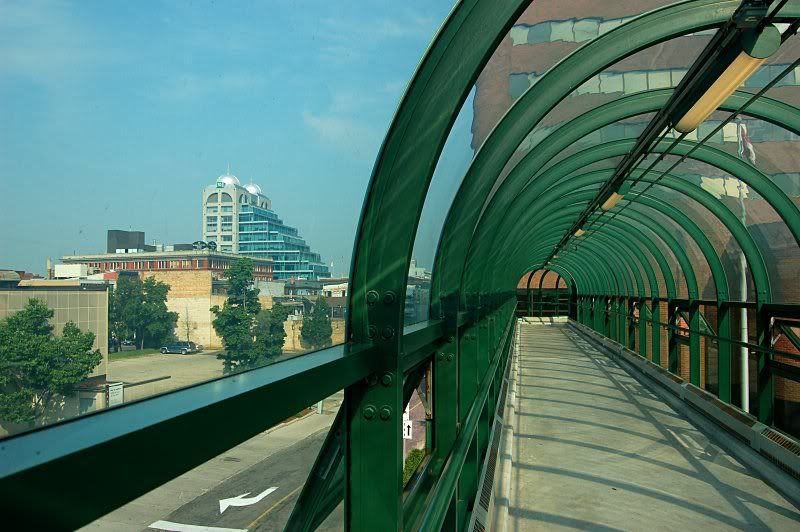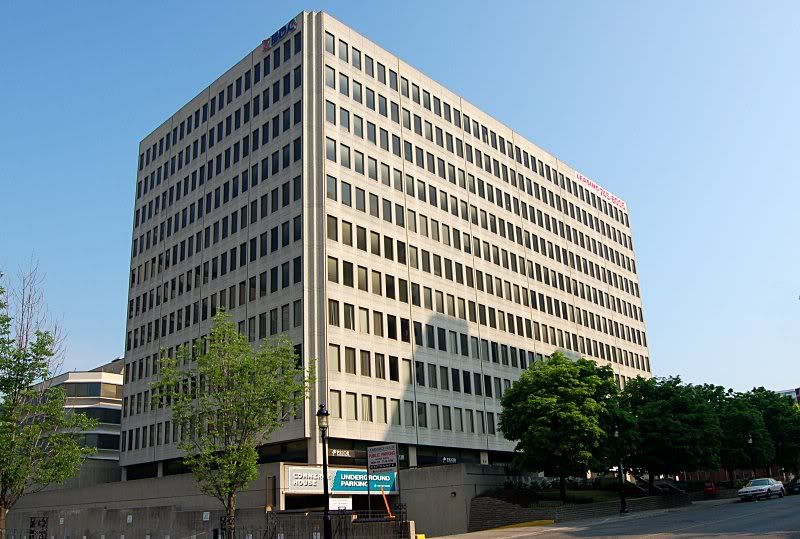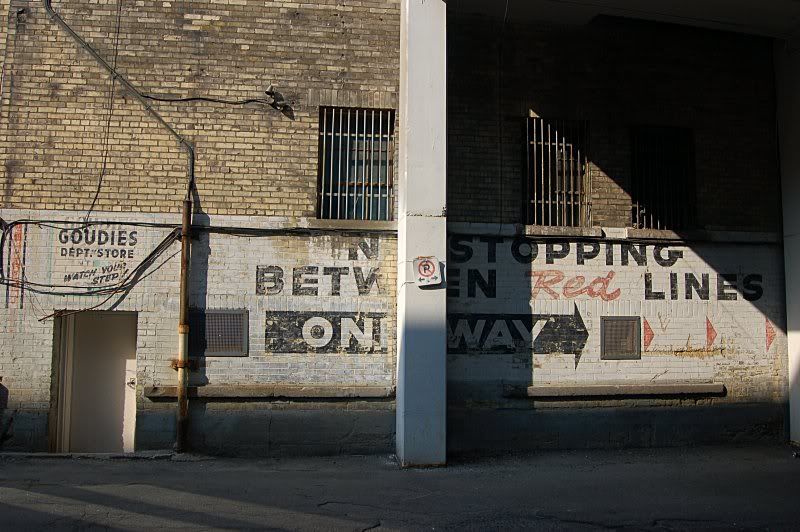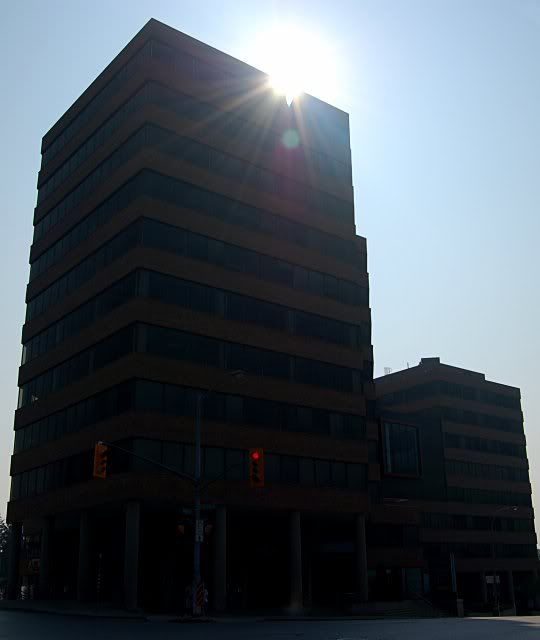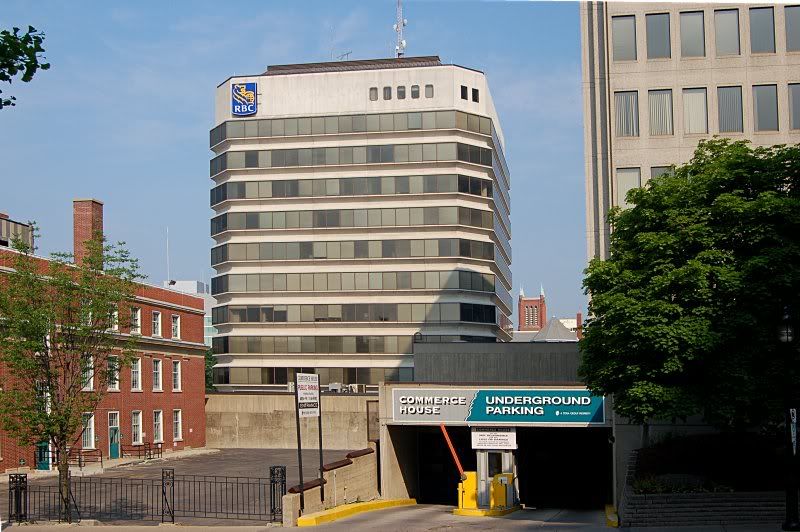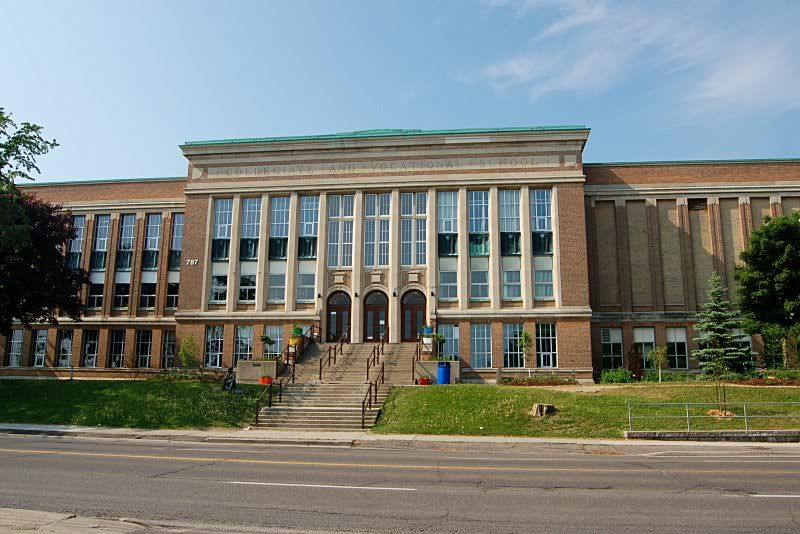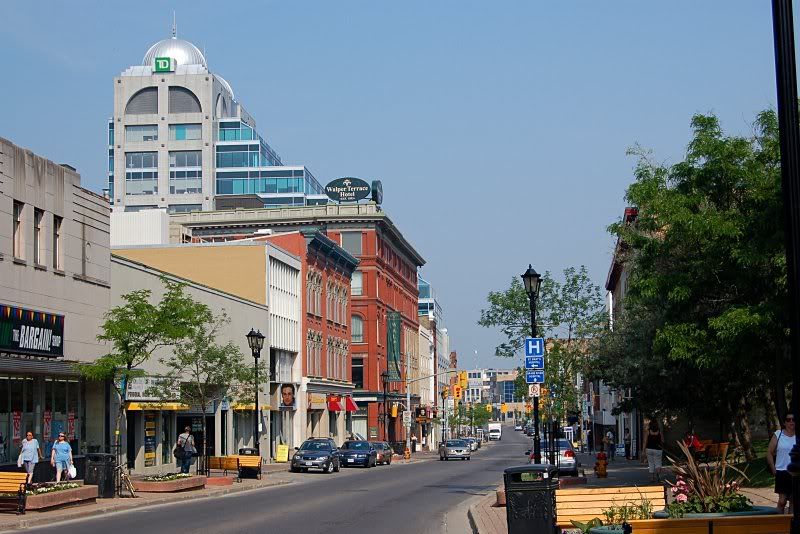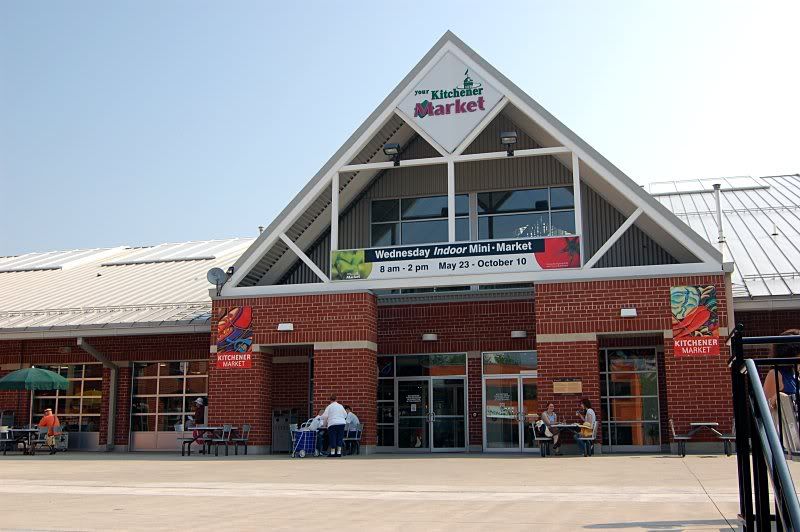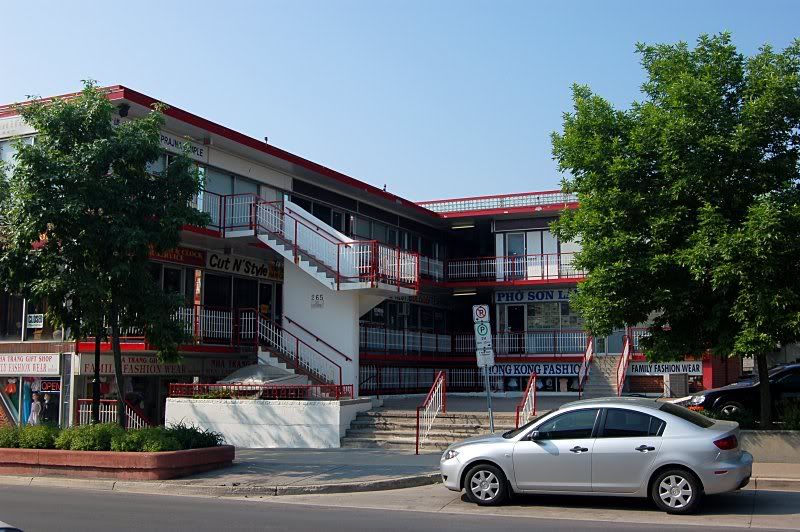^but that's the only thing there. A few metres from there it gets ugly rundown and then the sprawl begins. Too many parking lots in the area--the locals think there aren't enough

It will take decades for waterloo region to think of itself as a cohesive urban city--the place basically reminded me of mississauga only instead of older small towns and villages linked by highways and suburbia you've got a few older (mostly rundown) small-medium-sized cities (with a few cool pockets of uniquely "German?-style victorians) linked by hideous 6-8 lane roads and big box sprawl. If you don't have a car there (i didn't) you're out of it.
So, some cool (and never photographed) rundown old neighbourhoods exist in k-w but the downtowns (even uptown waterloo is empty except for students and grannies) are places for park'n stop not walk'n brunching.
Ugh.
I’m the first to complain about my old hometown, but aside from the bit about the car-orientation (totally true), such an assessment isn’t really accurate. I can understand how you might think it if you’re a student living up in the north Waterloo student ghetto, but there’s really a lot more to the city than that. First of all, I can count the number of roads in the city beyond four lanes on one hand, so it’s hardly an endless parade of 6-8 laners. There are significant areas of historic housing on the fringes of the two downtowns, filled with historic homes at dirt-cheap prices by Toronto standards. The difference is that most of the houses around downtown Kitchener (aside from the Victoria Park area) are filled with working-class families, while a lot of the Uptown Waterloo heritage homes are filled with university professors and the like. Sort of an Annex twenty years ago.
Downtown Kitchener does, however, have major problems. Aside from 20 King and a couple other restaurants, and some shops that have been there for decades, retail seems to find it very difficult to sustain itself. In the 90s, council decided to turn the area into an “entertainment district†for the region, and many bars opened, including two large venues built in historic theatres. After a few years, they quickly backpedaled as people complained that the club-goers scared away visitors. It’s true that the police presence was pretty heavy late at night back in the day, particularly around the Lyric, which was bought and torn down by the city a few years ago and is subject, along with some neighbouring properties, to a redevelopment plan that I posted a few weeks ago. King Centre was one of my favourite places in the city before it was turned into Manulife offices. It was a dead mall like you couldn’t even imagine. A vast (~100 stores) urban mall literally completely empty except for a Sears Value store, two or three shops clustered around it, and a Laser Quest. Market Square was a bit less of a total failure, and I remember going to the bookstore and a couple of other spots there when I was very young. Basically, right now downtown seems to be treading water. The office buildings are doing quite well, and are mostly fully occupied. Partly this is simply a sign of the region’s strong economy, but a lot of it is coming from offices fleeing high rents in Waterloo. Unfortunately, the after-5pm life is a bit quieter and shows few signs of real resuscitation. The main drivers seem to be cultural facilities, such as the extremely well-used Centre in the Square (known for its spectacular acoustics coupled with a somewhat unfortunate brown brick design) and the somewhat less successful Theatre and Company and Children’s Museum (built mostly with RIM money).
In fact, charitable institutions and cultural facilities of all kinds are doing extremely well in Waterloo Region. There is a very large number of successful entrepreneurs which are quite lavish with donations, something that you just don’t see in cities like Hamilton where most donations are from large corporations’ charitable programs.
“Uptown†Waterloo is a completely different story. It’s been much more successful in recent years, driven mainly by the extreme success of the city as a whole. As much as I’m a proud Kitchenerite (though one who could see Waterloo from his back window growing up), I do accept that Waterloo has been driving the region’s economy in recent years (with help from Cambridge’s heavy industry like Toyota). Back in the late 90s, at the height of the high tech boom, there were massive plans for redevelopment of the Waterloo Town Square site and Seagram lands. It was a ~$300 million project including theatres, shopping, condos, hotels, offices, and pretty much anything else you could possibly build. They had elaborate renderings of piazzas and pedestrian walkways galore. After a few years, the project was slowly downscaled so that it was limited to the Waterloo Town Square site, and a part of the existing mall was retained. A cross-street severed by the mall was rebuilt with shops along one side, while King Street’s parking lots were replaced with mid-rise (4 floor) buildings with retail at the base and offices above. They’ve been somewhat controversial in the community, among some people for being too high and looming over the street (they prefer setbacks) while among others (primarily local shopowners) for eliminating much of the free parking. There are lots of neat little shops in renovated houses surrounding the rather small core area. Houses converted to commercial uses are one of the building typologies I most associate with K-W. It’s obviously because the community was quite small even just a few decades ago, so even major arterials were lined with homes. It makes me quite happy that many of the heritage houses have been retained rather than being replaced with strip malls.
The biggest mistake ever made in the city was the location of the university residences, particularly U of W. They should all have been located down around Seagram Drive and the old Married Student Apartments where they would be a quick 10 minute walk through the park to the uptown area. From up along Columbia street, it’s quite a trek through a windswept campus.
I could go on forever about my city, but I should probably stop now.


